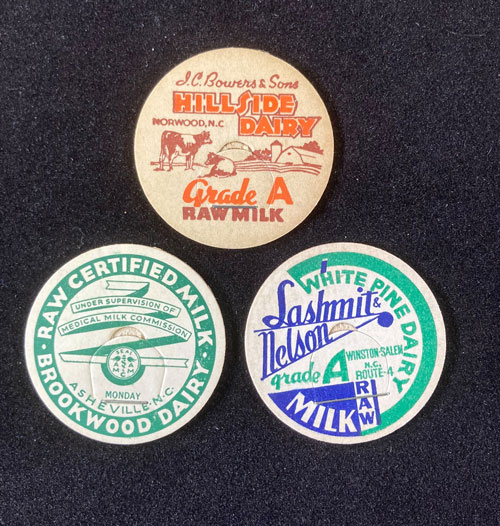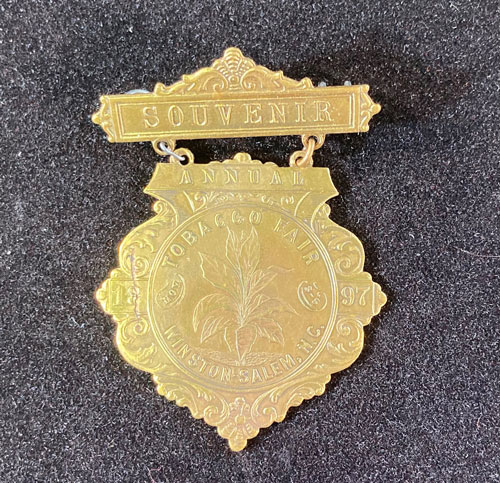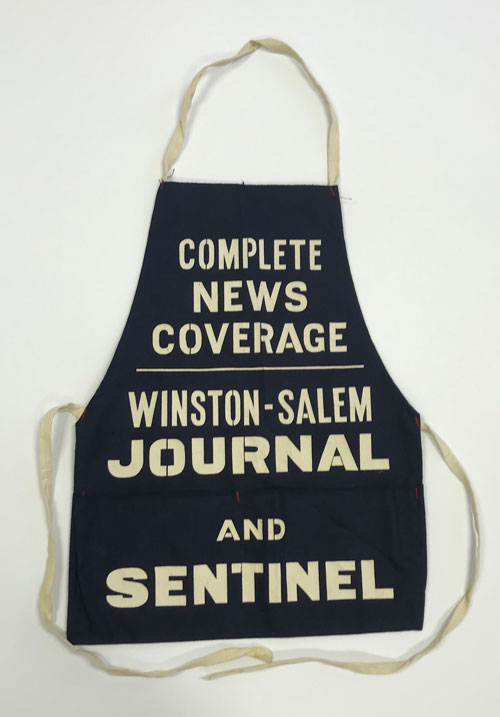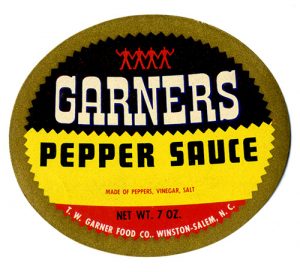“After 1900, in areas of North Carolina where farms were changing from row crops to livestock (primarily the Piedmont and western regions), some farmers with milk surpluses started regular dairy routes. These routes gave farmers ready cash each month rather than forcing them to wait for the annual row crop harvest. Small dairies, or creameries, usually served nearby geographic areas, selling fresh milk, butter, and ice cream to local families. By the early 1940s, such creameries were delivering milk to homes and grocery stores daily. These creameries often developed their own brand names in direct competition with some of the larger processors such as Pet and Sealtest.
“By 1953 more than 300 dairies existed in Iredell County, which has been the leading dairy county in North Carolina since records were officially kept.
— From Dairy Industry by Chester Paul Middlesworth in NCpedia (2006)
These milk bottle caps came from Lashmit & Nelson’s White Pine Dairy near Winston-Salem, from J.C. Bowers & Sons’ Hillside Dairy near Norwood (also Boone and Pittsboro) and from Brookwood Dairy of Asheville. (The Medical Milk Commission certification cited on the Brookwood cap was an early 20th century means to allow sales to pasteurization-wary consumers. The milk commission has disappeared, but the debate continues.)
From ancestry.com this note about the surname Lashmit:
“The most Lashmit families were found in the USA in 1920. In 1880 there were 9 Lashmit families living in North Carolina. This was 100% of all the recorded Lashmit’s in the USA. North Carolina had the highest population of Lashmit families in 1880.”




